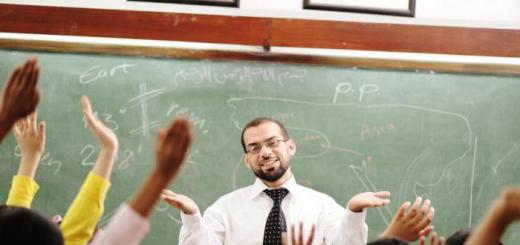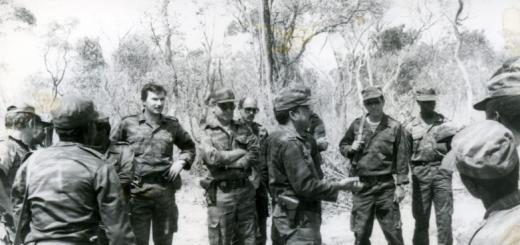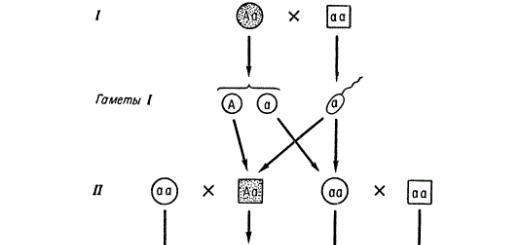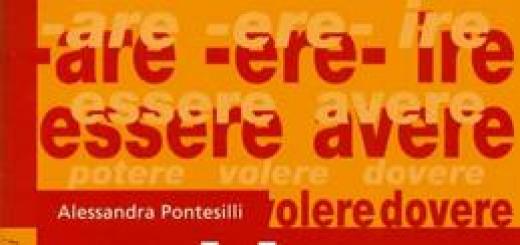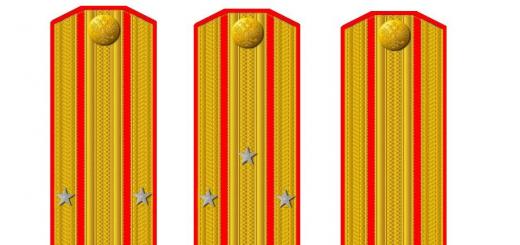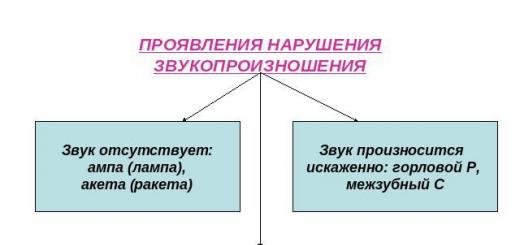On Friday, a large number of stickers with the text “How can this be, Rector Kudryavtsev?” appeared at the institute, stuck on various flat surfaces? In the “Fizkek” VKontakte group, a text appeared with fairly clearly formulated claims, to which these stickers were apparently supposed to attract attention.
The main problems that the authors pay attention to text, are:
- Bureaucratic fuss around fire safety;
- Forcing people to vote for a “traditional” candidate;
- Closing of reading rooms at night;
- Destruction of faculties and replacing them with amorphous physical and technical schools;
- Closing access to dormitories for students who have not paid for dormitory accommodation.
These considerations are summarized as follows (spelling changed):
“I don’t want a crazy monarch at the head of MIPT. I don’t want him to be replaced in two years by another crazy person who would already know that this is possible at the Physics and Technology Institute. I want my opinion to be taken into account. I want any serious decision of the administration to be approved by the Ministry of Culture, as well as the deans and student councils of the faculties to which it concerns. I want the faculty merger to happen in at least a year if it turns out to be really useful. I want to study at the best technical university in the country.”
We often repeat that we have good students. Now we can state that the students at our institute are not just good, but wonderful.
On the one hand, Physics and Technology stands out quite favorably against the background of many other universities. Compared to them, we have a relatively democratically structured university, and the management regime established in our country compares favorably with many other institutions. Something like enlightened absolutism from feudalism during the Dark Middle Ages. However, our administration, albeit slowly, is drifting towards feudalism.
All the problems mentioned by students really exist. As well as some others, not so noticeable to students. These are the problems of the lack of open-ended contracts at MIPT, the rather heavy workload of teachers, an inefficiently functioning bureaucracy, and money distributed behind the scenes.
But the main root of all these problems is the lack of elected leaders, properly functioning self-government, lack of rights for teachers and students, and a low level of academic freedom in general. Elections of heads of departments have been transferred to the level of the academic council; The competition for teachers to occupy temporary positions (and we have only one permanent position for the entire institute) has been transferred to the level of the academic council. Decisions about which the management of the instituteobligedinform our trade union, are not brought to our attention (which is why there is still no clear information about the abolition of faculties), the opinions of students and teachers on the most important issues are not taken into account.
A very typical example here is the closure of the institute’s buildings on weekends and at night. It cost nothing to conduct reasonable consultations with interested parties and find a solution acceptable to all. Instead, a conflict erupted virtually out of nowhere. The same applies to other issues in the life of the institute.
We are ready and will cooperate with everyone who wants to see Physics and Technology as a strong, modern university. We will continue to fight for teachers' rights and academic freedom. Together (and only together!) we can preserve the former greatness of Phystech and increase it.
schedule Operating mode:
Mon., Tue., Wed., Thu., Fri. from 09:00 to 18:00
Latest reviews from MIPT
Nikita Mamontov 12:19 07/11/2013I wrote the Unified State Exam brilliantly, with computer science 276, physics 269. All that remained was to choose a university. My choice fell on physics and technology for several reasons. First of all, it's the name. Opened after the Patriotic War, MIPT was initially a faculty of Moscow State University, located in the city of Dolgoprudny (18 minutes from Timiryazevskaya station by train), but after a while it became a world-famous institute, whose teachers were such scientists as Kapitsa, Sakharov, Landau!!! Their portraits hang all over the university) Secondly...
general information
Federal State Autonomous Educational Institution of Higher Education "Moscow Institute of Physics and Technology (National Research University)
License
No. 02816 valid indefinitely from 04/11/2019
Accreditation
No. 03123 is valid from 05/17/2019 to 06/26/2021
Previous names of MIPT
- Moscow Energy Institute
Monitoring results of the Ministry of Education and Science for MIPT
| Index | 2019 | 2018 | 2017 | 2016 | 2015 | 2014 |
| Performance indicator (out of 5 points) | 5 | 5 | 7 | 7 | 6 | 6 |
| Average Unified State Examination score for all specialties and forms of study | 94.56 | 93.43 | 94.45 | 93.08 | 92.90 | 91.99 |
| Average Unified State Examination score of those enrolled on the budget | 97.52 | 95.13 | 96.78 | 96.31 | 93.83 | 94.99 |
| Average Unified State Examination score of those enrolled on a commercial basis | 86.15 | 83.59 | 83.6 | 83.02 | 78.62 | 79.48 |
| Average minimum Unified State Exam score for all specialties for full-time students enrolled | 71.48 | 73.78 | 73.3 | 71.74 | 72.14 | 71.46 |
| Number of students | 6483 | 6240 | 6095 | 5878 | 5611 | 5326 |
| Full-time department | 6483 | 6240 | 6095 | 5878 | 5611 | 5326 |
| Part-time department | 0 | 0 | 0 | 0 | 0 | 0 |
| Extramural | 0 | 0 | 0 | 0 | 0 | 0 |
| All data | Report | Report | Report | Report | Report | Report |
University Reviews
The best classical universities in Russia 2009. The rating was compiled by the international information group "Interfax" and the radio station "Echo of Moscow"
The best financial universities in Russia according to the magazine "FINANCE". The rating is based on data on the education of financial directors of large enterprises.
About MIPT
Moscow Institute of Physics and Technology (state university) is one of the best universities in the Russian Federation, which trains highly qualified specialists in a variety of fields of science and technology.
Phystech mission and system
MIPT is engaged in training highly qualified world-class specialists who will be able to develop and implement the latest equipment and technology in priority areas of development of the Russian economy. The thorough education students receive at the university allows them, after graduation, to quickly master the latest technologies used in enterprises and take an innovative approach to solving problems and challenges that arise in the workplace.
Many MIPT graduates subsequently occupy leading positions in the world of science. And this is not without reason, because the university has a certain system, thanks to which students are involved in the research activities of the university almost from the very beginning of their studies. This allows students to receive a quality education, which will help increase their competitiveness in the labor market.
The “Phystech System” was developed by Pyotr Leonidovich Kapitsa and is currently the most unusual system for teaching students in Russia. It is that:
- students are trained in their chosen specialty not only through lectures given by university teachers, but also through practical classes, which take place in laboratories equipped with the latest equipment and technology under the guidance of researchers;
- Students are trained in their specialty on an individual basis, so each student has their own supervisor, whom they can contact at any time with any questions;
- starting from the 2nd-3rd year, all students are involved in scientific work that is carried out on the territory of MIPT;
- After graduation, each student has all the methods of both theoretical and experimental research and sufficient engineering knowledge to solve problems that may arise in production.
University structure
In order to ensure the effective functioning of MIPT, which will allow university students to receive a quality education, the institute has a rather complex university structure, each component of which plays an important role in the educational process.
The university has:
- MIPT-Telecom's own provider, which allows students and university staff to maintain constant contact with the outside world thanks to an Internet connection. This provider covers the entire territory of MIPT and its campus;
- the university’s electronic library, which contains a lot of necessary literature for university students, which can be consulted online at any time of the day;
- the scientific journal "Proceedings of MIPT", which is published by the university and in which scientific works of students and teachers of the university are published;
- Phystech-polygraph is a department of MIPT that produces scientific and methodological literature of the university;
- The Physics and Technology Center is a department that coordinates the work of the university with schoolchildren and promotes the development and education of talented children who like and find natural sciences easy;
- correspondence school of physics and technology - a union of MIPT teachers working with gifted children who will later become university students;
- The Center for Continuing Professional Education is a department of the university where working specialists can take advanced training or retraining courses in order to become more competitive in the labor market;
- The Center for Corporate Entrepreneurship is a department of the university that trains specialists who can open, launch and successfully implement their own entrepreneurial projects;
- The Student Youth Center is an association of university students, thanks to whose efforts various concerts and competitions are held at MIPT for the comprehensive development of student youth.
International activities at MIPT
International activities at the university are carried out through the Department of International Relations. The main activities of the department are:
- mutually beneficial cooperation with international foundations and organizations, thanks to which MIPT scientists can participate in international programs, find foreign partners, take part in seminars and help promote their intellectual products in the world market, receiving grants for their research;
- advertising and marketing activities, during which the study of the educational process in foreign universities and the introduction of the most high-quality and effective educational programs into the training of MIPT students takes place. It also helps attract foreign students to study at the university through the development of an English version of the MIPT website and advertising brochures for foreign applicants in foreign languages;
- registration activities, thanks to which foreign students are registered at MIPT, as well as assistance to teachers and professors from foreign universities in obtaining visas and invitations so that they can visit the Physics and Technology Institute and give their lectures there;
- joint research activities of students and teachers of MIPT and foreign universities.
The existence of Phystech can be divided into two stages, from 1946 to 1951, when Phystech was essentially the Faculty of Physics and Technology of Moscow State University, and from 1951 to the present day, when MIPT appeared as an independent institution instead of the disbanded Physics and Technology Faculty of Moscow State University.
In the first period of time, there was no post of rector as such, he was the MSU vice-rector for special issues (a post created specifically for the leadership of the FTF) - Sergei Alekseevich Khristianovich, and the first dean of the FTF was Professor Dmitry Yuryevich Panov.
After the creation of MIPT in September 1951, Fyodor Ivanovich Dubovitsky was appointed acting director of MIPT until April 1952, when Lieutenant General of Aviation Ivan Fedorovich Petrov became director of MIPT. In 1961, due to the renaming of the position of director of the institute, Petrov was appointed the first rector of MIPT. In 1962, a new rector was appointed - one of its first graduates - academician Oleg Mikhailovich Belotserkovsky. He headed Phystech until 1987.
From 1987 to 1997, the rector was Corresponding Member of the Russian Academy of Sciences Nikolai Vasilyevich Karlov, a 1951 graduate of the Physics and Technology Faculty of Moscow State University.
In 1997, MIPT was headed by Professor Nikolai Nikolaevich Kudryavtsev, a graduate of the Physics and Technology Institute in 1973, a corresponding member of the Russian Academy of Sciences since May 22, 2003.

(1908-2000) Vice-Rector for Special Issues of the Faculty of Technical Sciences of Moscow State University from 1947 to 1951. |

(1907-1999) And about. Director of MIPT from 1951 to 1952. |

(1897-1994) Director of MIPT from 1952 to 1962. |

(1925-2015) Rector of MIPT from 1962 to 1987. |
Education
1967–1973 - student at MIPT, Faculty of Molecular and Chemical Physics.
1973 - Graduated from MIPT with a degree in Physics and Mechanics of Chemical Processes.
1977 - defended his dissertation for the degree of candidate of physical and mathematical sciences.
1987 - defended his dissertation for the degree of Doctor of Physical and Mathematical Sciences on the problems of thermal protection of the Buran reusable spacecraft.
Professional experience
1977 - Assistant at the Department of Molecular Physics.
1978–1987 - Deputy Dean of the Faculty of Molecular and Chemical Physics.
1987 - Dean of the FMHF.
1988 - Head of the Department of Molecular Physics.
1990 - awarded the title of professor.
1991 - became one of the founders of JSC Laboratory of Pulse Technology (LIT) at MIPT, created to promote ultraviolet water disinfection systems in the region. Led the development of these systems.
1994 - elected to the position of General Director of JSC Fonon
1997 - elected rector of the Moscow Institute of Physics and Technology (state university).
Awards and achievements
2000 - Honorary title “Honorary Worker of Higher Professional Education of the Russian Federation” Federation".
2001 - Laureate of the Prize of the Government of the Russian Federation.
2005 - Winner of the Prize of the President of the Russian Federation in the field of education.
2007 - Honorary title “Honored Worker of Higher School of the Russian Federation.”
2011 - Badge of the Governor of the Moscow Region “For Useful”.
2011 - Insignia of the head of the city of Dolgoprudny “For the glory of Dolgoprudny.”
2013 - Gratitude from the Ministry of Education and Science of the Russian Federation.
2015 - Insignia of the head of the city of Dolgoprudny “For contribution to the development of the urban district of Dolgoprudny, Moscow region.”
On May 22, 2003, he was elected a corresponding member of the RAS. He has more than 110 scientific papers, 9 monographs (co-authored), 10 patents. Invited to give lectures and scientific work in the USA (1991, 1992, 1993), France (1992, 1993, 1994), Italy (1994). He has also been repeatedly invited to give original and review lectures at international conferences on shock tubes, aerothermochemistry, chemical and gas-dynamic lasers.
In 2009 – 2012 Nikolay Kudryavtsev was a member of the Presidential Council of the Russian Federation on Science, Technology and Education, and since 2008 he has been a member of the International Council of the International Global Energy Prize.


